|
Medroxyprogesterone acetate (MPA)the drug used for chemical castration
Paul May
Also available: HTML and VRML versions.
|
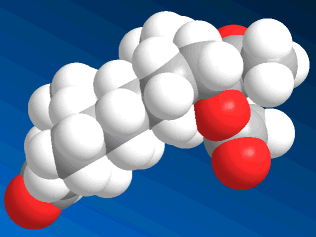 |
|
Medroxyprogesterone acetate (MPA)the drug used for chemical castration
Paul May
Also available: HTML and VRML versions.
|
 |
Actually it isn't. It is administering a drug designed to reduce sexual activity and libido, and usually involves a simple injection.
It is often used in many countries as a way of treating male sex offenders, particular child molesters, to prevent them having the urges to reoffend.
MPA is an anti-androgen drug which is closely related to the human hormone progesterone. As such it has a whole series of effects on the human nervous, endocrine and reproductive systems. In women, MPA is used safely as a contraceptive, for hormone replacement therapy, or to treat menstrual problems. But on men it counteracts the affects of androgen (the 'male' hormone), leading to a reduction in their sex drive, their compulsive sexual fantasies, and their capacity for sexual arousal.
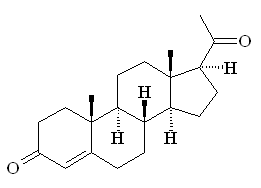 |
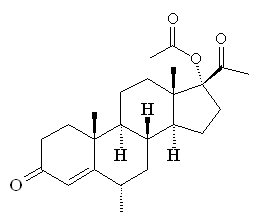 |
Progesterone |
MPA |
Yes. There are a number of civil rights groups, such as the American Civil Rights Union, that object to chemical castration on the grounds that forcibly administering any drug is a 'cruel and unusual punishment' prohibited by the 8th Amendment. Another objection is that it only works on males, and until a similar treatment is found for women, this type of punishment is unequal. Despite these objections, many countries in the world now accept chemical castration as a humane alternative to lifelong imprisonment or surgical castration for dangerous sexual predators.
One of the most infamous cases (and arguably the most unjust) was that of the famous British scientist Alan Turing, who helped break the German Enigma code in WW2, and went on to become the founder of modern computer science. He also created the famous 'Turing test' which is used to decide whether a computer has artificial intelligence. However, Turing was a homosexual, which was illegal in the UK in 1952. Rather than face a prison sentence, Turing opted to undergo chemical castration instead, to 'cure' him of his homosexual urges. However he suffered from some of the unwanted side-effects of the drug, developing enlarged breasts and bloating. He committed suicide 2 years later. In 2009 - following an online petition with 30,000 signatures - the then UK Prime Minister Gordon Brown issued a public apology on behalf of the British Government for the 'appalling actions' done to Turing in the 1950s.
 |
 |
Alan Turing |
 More recently, in 2010 Ryan Yates (photo, right) was jailed for attempting to murder a 60-year-old-woman in an Aberdeen park during an attempt to rape her two young granddaughters. He was jailed for 10 years, and later agreed to be chemically castrated in order "to try anything to overcome his problems which have blighted his life."
More recently, in 2010 Ryan Yates (photo, right) was jailed for attempting to murder a 60-year-old-woman in an Aberdeen park during an attempt to rape her two young granddaughters. He was jailed for 10 years, and later agreed to be chemically castrated in order "to try anything to overcome his problems which have blighted his life."
Although MPA is most commonly used in Europe and the UK, in the US a variant of this is used as an aqueous suspension, called Depo Provera (DMPA). This method allows the drug to be administered by an injection into the muscle a few times a year. Other drugs that are used include cyproterone and Benperidol, which is often prescribed to sex offenders as a condition of their parole.
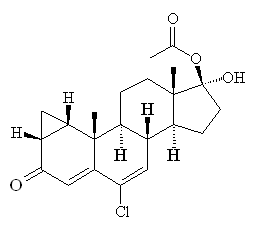 |
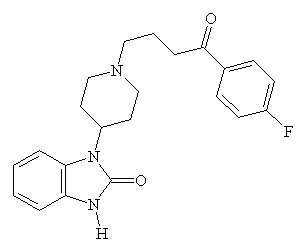 |
![]()
![]()